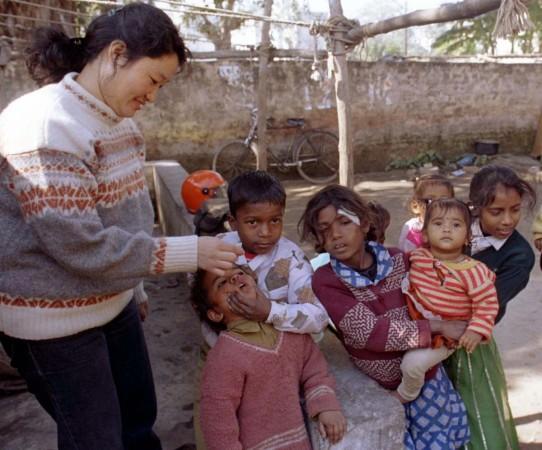
Detection of vaccine-derived polio virus (VDVP) in different parts of India does not change the country's polio-free status, the World Health Organisation (WHO) said, as reported by the Mint. Calling the VDVP strain of polio virus as a low level threat, the WHO said the strain was a rare one resulting from the mutation of a weakened virus that exist in the oral polio vaccine (OPV).
Since January 2015, sewage samples from 14 sites in India tested positive for VDVP, including the one collected from an environmental site of Amberpet Nala (canal) in Hyderabad. The confirmation of the strain in Hyderabad as a type 2 VDVP had sent the state and central health authorities on a flurry of activities on Tuesday and Wednesday.
"All of these have been responded to urgently and appropriately with polio vaccination campaigns," Henk Bekedam, WHO representative in India, said. He added that it was all a "low level threat."
The WHO said further that the risk in transmission of the virus found in Hyderabad virus from the environmental sewage site is low, as no children leaving around have been found to be affected by it.
The agency added that the sampling and testing of the sewage sites is continuous process, and carried out to identify polio virus transmission at play as detected polio cases (acute flaccid paralysis) have become nil in the country.
The Union Ministry of Health and Family Affairs too said in a statement that "no children had been found to be affected by the detected VDPV isolate in the nearby areas." It added that the last case of wild polio Type 2 was reported 17 years ago in 1999.













